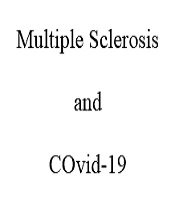Dear Editor,
One of the most frequently asked questions of multiple sclerosis (MS) patients in these days is the need to discontinue or continue their medications used for MS at the time of the Coronavirus Disease 2019 (COVID-19) outbreak. Since some drugs used for MS are immunosuppressive and can increase the incidence and severity of infectious diseases (1), asking the above-mentioned question is very logical; so, it must be addressed with sufficient evidence.
So far, no evidence has been published on the effects of MS drugs on the incidence or exacerbation of COVID-19. Therefore, the guidelines published by various MS associations (2, 3) are solely based on their personal experience and clinical evidence of other infections. Currently, no one knows what symptoms the coronavirus will have in a patient with MS who is consuming these medications. However, some points should be taken into account by physicians to decide whether to continue or discontinue the prescribed medications. It is not logical to discontinue the medications in a patient who is not infected by the coronavirus. Discontinuation of treatment can increase the risk of attack in MS patients, leading to hospitalization, increased exposure to the coronavirus, and consequently increased risk of COVID-19.
Paying attention to the immunopathology of the virus can give us a relative understanding of the behavior of the virus in the presence of MS medications. Beta interferons are common drugs that can be used for the treatment of MS; accordingly, these drugs are not only immunomodulatory but also antiviral (4). Previous evidence has also shown that beta interferons can prevent the spread of the severe acute respiratory syndrome coronavirus (SARS-CoV) (5). Hence, studies are performed to evaluate the efficacy of this drug on the treatment of COVID-19 (6). The other drug to be considered in the treatment of COVID-19 is fingolimod, which is the first oral medication used to treat MS. It can prevent the outflow of activated lymphocytes from the lymph nodes and their entry into the central nervous system (7). Since COVID-19 pneumonia has shown to be caused by an exaggerated immune system response and a cytokine storm (8), the use of drugs that can modulate this severe immune response has been considered in the treatment of severe cases of lung involvement by COVID-19, and one of the drugs studied for this purpose is fingolimod (9). Other drugs used in MS can also modulate the immune system, and one of these drugs widely used in Iran is rituximab (10). It has been shown that Tumor Necrosis Factor-α (TNF-α) levels are elevated in COVID-19 patients in response to the exaggerated immune system response in them (11). Therefore, the use of anti-TNF-α drugs like adalimumab has been considered in the treatment of this enhanced immune system response in COVID-19 patients (12). Although rituximab is an anti-CD20 drug, it has been used for patients with rheumatoid arthritis are not responding to anti-TNF-α drugs; it has also shown a good effect on the immune system modulation in the immune system of these patients (13). Although no study has been conducted on the efficacy of these types of immunosuppressive medications in severe cases of COVID-19, the possibly positive effect of these kinds of medication can be a hypothesis that needs further research. On the other hand, the possibility of depressing immune response and consequent development of more aggressive forms of COVID-19 after administration of immunosuppressant should be considered. However, it seems that MS patients are not more susceptible to be infected by the coronavirus than are normal populations (14).
To sum up, there is no reason to discontinue MS drugs at the time of the COVID-19 pandemic. Future studies may discuss the positive effects of these drugs on MS patients with COVID-19 disease, which requires a great deal of research evidence.
